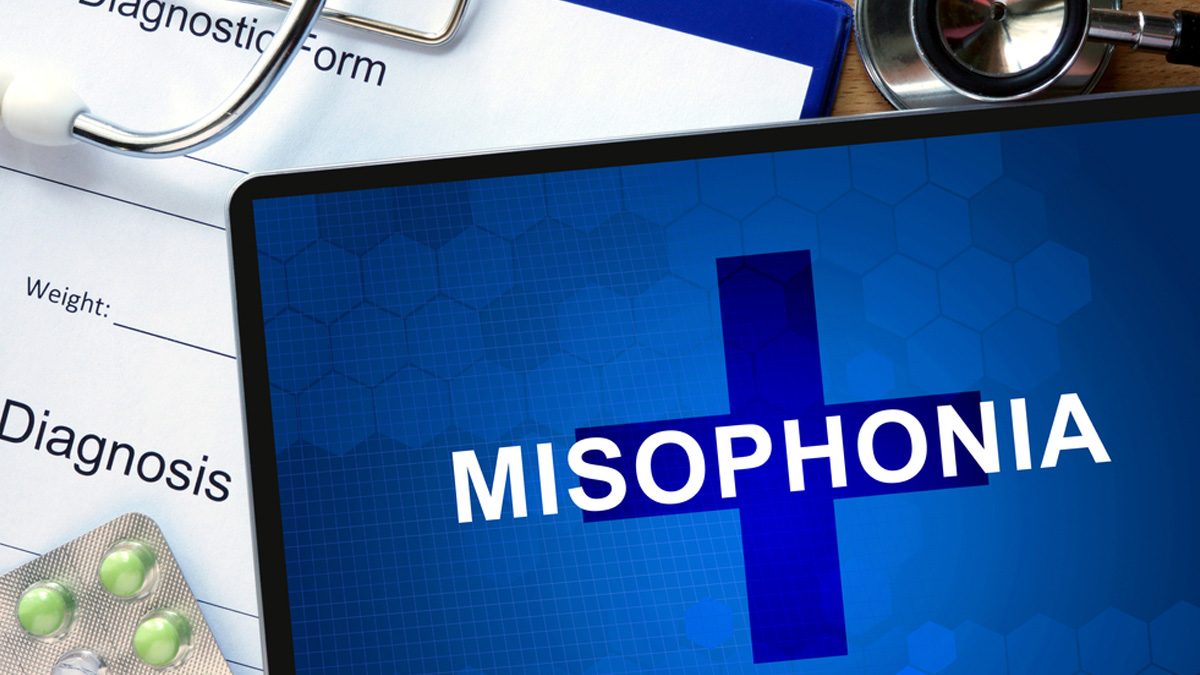
Have you ever felt a surge of frustration or anxiety when hearing certain everyday sounds, like someone chewing loudly, tapping a pen, or even breathing? While these noises might seem harmless to most, for some individuals, they can provoke intense emotional reactions that are hard to control. This condition, known as misophonia, can turn ordinary sounds into sources of distress, affecting a person's emotional well-being and social life. We reached out to our expert Dr Sheetal Goyal, Consultant Neurologist, Wockhardt Hospitals, Mumbai Central, who shed light on this often misunderstood condition, explaining how misophonia isn't just a simple irritation but a complex issue that can be deeply disruptive for those affected.
Table of Content:-
What Is Misophonia?

"Misophonia, commonly known as 'sound hatred,' is a condition in which certain sounds trigger intense emotional responses. These sounds might seem entirely innocuous to most, but for someone with misophonia, they can feel unbearable. The person with misophonia may feel a sense of rage or disgust, and the emotional response can be so intense that it leads to physical reactions like sweating, shaking, or even an increased heart rate," explained Dr Goyal.
According to a 2022 study, misophonia is a complex disorder that involves both neurophysiological and behavioural factors, with multiple potential causes. It is marked by an exaggerated physiological and emotional reaction triggered by an intolerance to certain sounds. This condition is often referred to as a form of sound intolerance, where individuals exhibit heightened sensitivity and a strong aversion to specific types of sounds.
The most common triggers for misophonia include sounds like chewing, slurping, tapping, typing, throat clearing, or even heavy breathing. For individuals affected by this condition, it’s not simply an annoyance—it's a deeply distressing experience that can significantly impact their emotional well-being, relationships, and social interactions.
Also Read: Tibetan Singing Bowls: How Can It Be Beneficial For Your Mental Health
What Causes Misophonia?

While the exact cause of misophonia remains unclear, research suggests that the condition may be linked to increased sensitivity in the auditory processing regions of the brain. In the general population, sounds are processed in a relatively neutral way. However, for individuals with misophonia, their brains may misinterpret certain sounds as threats, triggering a strong emotional response. This heightened sensitivity could be a result of abnormal neural connections or an overactive connection between the auditory system and the limbic system, the area of the brain that governs emotions.
“Some theories suggest misophonia might also have an emotional or psychological component. Some researchers speculate that the condition may be triggered by past traumatic experiences or emotional associations with certain sounds. Alternatively, it might be related to anxiety or other mental health conditions, though this link is still being studied,” said Dr Goyal.
The Emotional and Social Impact

Living with misophonia can be isolating. The sounds that cause distress may not bother others in the same way, leading to frustration and misunderstandings. “The condition can lead individuals to avoid social situations where these triggers might occur, such as family meals, public transportation, or even workplace settings. This avoidance can, in turn, lead to social isolation and anxiety, as the fear of encountering these sounds intensifies,” said Dr Goyal.
For many, misophonia becomes an internal struggle, where the anticipation of hearing a triggering sound creates heightened anxiety, even before the sound is heard. This cycle of anxiety and emotional distress can make everyday situations incredibly stressful, diminishing the individual’s overall quality of life.
Also Read: Benefits Of Sound Therapy For Mental Health: How Does It Help Overcoming Anxiety?
Coping Strategies for Misophonia
While misophonia can be challenging, various strategies may help individuals manage their emotional responses and reduce the impact of the condition on their lives.

- Sound Masking: One of the most common coping strategies is the use of sound masking techniques. Many individuals find relief using white noise machines, calming music, or earphones to drown out the triggering sounds. This can help reduce the emotional impact of the noise, allowing individuals to stay calm and focused.
- Cognitive-Behavioral Therapy (CBT): Cognitive-behavioural therapy is another effective treatment option for individuals with misophonia. CBT assists patients in recognising and questioning the thoughts and beliefs that drive their emotional responses. By reframing their responses to triggers and learning relaxation techniques, many individuals can manage their reactions more effectively.
- Desensitisation: Gradually exposing oneself to the triggering sounds in a controlled and safe setting can help lessen sensitivity over time. This desensitisation process, often guided by a therapist, helps individuals build tolerance and decrease their emotional response to the sounds.
- Support Groups and Community: As misophonia is not widely recognised as a distinct disorder, many individuals feel alone in their struggles. However, support groups and online communities offer a sense of connection, providing emotional support and helpful coping strategies through shared experiences.
Bottomline
Dr Goyal concluded, “While misophonia is not yet officially recognised as a distinct disorder in many diagnostic manuals, increasing awareness is paving the way for better understanding and treatment options. For those affected, it’s crucial to seek support and explore coping mechanisms to improve their quality of life. By fostering awareness and compassion, society can create a more accommodating environment for individuals navigating the challenges of misophonia.”
[Disclaimer: This article contains information provided by an expert and is for informational purposes only. Hence, we advise you to consult your own professional if you are dealing with any health issues to avoid complications.]
Also watch this video
How we keep this article up to date:
We work with experts and keep a close eye on the latest in health and wellness. Whenever there is a new research or helpful information, we update our articles with accurate and useful advice.
Current Version